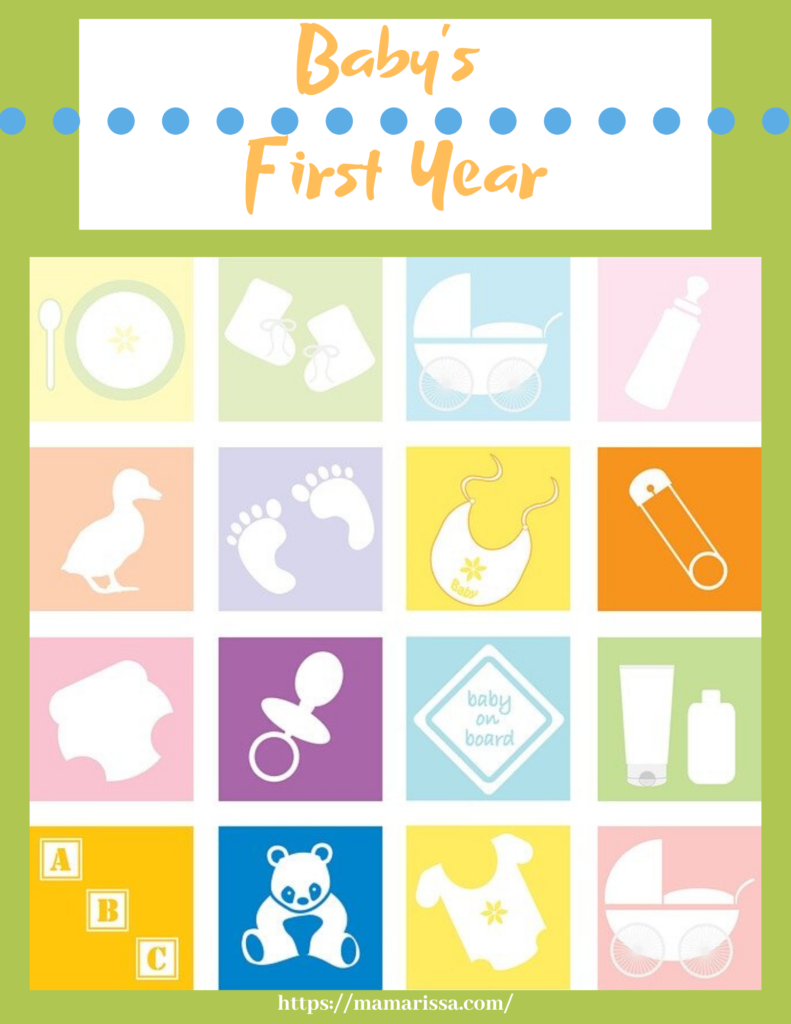Pregnancy is an incredibly special time when the mother-child bond is as close as two humans can possibly be. This intense bond creates the deepest kind of human love a woman will ever experience in her life, and these strong feelings (not to mention amped-up hormones!) can lead to quite a bit of fear throughout pregnancy.
But I am here to tell you – as a mom of both a baby up in heaven and a toddler in my arms – that worrying about every little thing, easy as it is to do, does not improve your baby’s chances of survival and health. This is not exactly breaking news, but we continue to do it anyway, don’t we? It is especially difficult for those who have experienced loss not to worry about their unborn child – and understandably so.

I’m not trying to tell you everything is fine with your pregnancy regardless of your fears, because I can’t make that kind of promise. But I do know there are a lot of perfectly normal things that can happen in pregnancy that seem like problems. So I am going to share 4 of these common scares women have during pregnancy that often do not mean anything is wrong.
Note: None of the following statements are or should be construed as medical advice. ANYTIME you are concerned that there may be something wrong with your baby, consult your care provider.
Early Pregnancy
1. Bleeding
Bleeding is probably one of the scariest possibilities a pregnant woman will worry about, especially early on. It can be terrifying to be happily pregnant only to suddenly discover you are bleeding. This can, after all, be a signal that a miscarriage is happening.
However, what you may not realize is that many women will bleed in early pregnancy, even when the baby is completely healthy and nothing is wrong. The APA (American Pregnancy Association) states that 20-30% of women will bleed during the early months of gestation, but half of these will not miscarry.

My sister and I have both experienced bleeding in healthy pregnancies which resulted in our children who are now cousins 2 1/2 months apart (see my birth story here and my sister’s here). For me, it was a brief and small amount of bleeding at 10 weeks along – although still a painfully frightening experience, particularly given my previous miscarriage.
My midwife did not know what caused it, but the baby was obviously healthy on the ultrasound. She actually waved at us during the ultrasound as though she was playing a funny prank on mommy and daddy.
My sister, on the other hand, experienced a larger amount of bleeding over the course of several weeks (starting around 6 weeks and lasting 3-4 weeks). She had a subchorionic hematoma. This is basically a collection of blood around the placenta and can involve some separation of the placenta from the uterus. But it is usually not a serious complication and heals without any intervention. Take a look at this What to Expect article for more information on subchorionic bleeding.
Bleeding can also be triggered by intercourse or a pap smear. This is simply because your cervix is more sensitive due to the increased blood flow to the area. Another cause of bleeding during pregnancy is infection which would require diagnosis and treatment by your care provider (Source).
You should always get checked out if you experience bleeding at any time during pregnancy – especially in later pregnancy as this can be more serious – but try to stay calm while you wait for answers. The more relaxed you are the better – for the sake of the baby as well as yourself.
2. Lack of Morning Sickness
Also a common fear-contributor, the absence of morning sickness in early pregnancy is often associated with a less healthy pregnancy. While this is sometimes true, 20-30% of women never have morning sickness and still carry and deliver healthy babies according to Expecting Science.
One study involving less than 2,500 women did find a higher risk of miscarriage for women who do not experience any morning sickness. However, Ava Women notes that up until the eighth week of pregnancy, your risk of miscarriage is not increased by not having morning sickness (because morning sickness can start at various stages of pregnancy for different women) and the increased risk goes away altogether once you’re past twelve weeks.

Black and Asian women are also less likely than white women to experience morning sickness, and black women are more likely to have nausea after the first trimester.
It can also be disconcerting to have morning sickness only to have it disappear. If you’re like me and every other pregnant woman I have ever talked to, when you wake up one morning feeling good, your mind races with panicked thoughts that you are having a miscarriage.
But try to stay calm, mama. This happens so often in completely healthy pregnancies. For many women, morning sickness, along with other pregnancy symptoms, can vary in intensity from day-to-day. It can even be non-existent some days. This is not a reliable sign of miscarriage.
While loss of pregnancy symptoms can occur with a miscarriage, oftentimes women who miscarry may continue to feel pregnant (as I did with my miscarriage). On the other hand, women who are carrying healthy babies might not feel like they are pregnant. There are a lot of women who don’t even know they are pregnant until they are into their second trimester!
Don’t let how you’re feeling physically from one day to the next dictate how you’re feeling emotionally. If you’re noticing a continuous decline of morning sickness and/or other pregnancy symptoms before 12 weeks, ask your care provider for a blood test to check your hormone levels.
Late Pregnancy
3. Lack of Fetal Movement
When you are 23 weeks pregnant and haven’t felt your baby move yet, you are bound to question if everything is okay in there. While this can (rarely) signal a problem, an OBGYN interviewed by Today’s Parent states that women who have extra weight may not feel their baby moving as early. Or your placenta could be in an odd spot (like smack dab in the front of your uterus – right where you generally feel the most movement), making it hard to feel those baby kicks just yet.
While you should always voice any concerns to your care provider, WebMD says women start to feel their baby’s movements anywhere from as early as 13 weeks (for veteran moms) to as late as 25 weeks (particularly for first time moms).
Get your FREE Baby’s First Year journal here!

The first time I felt my baby move and knew that it was for sure my baby and not just gas, I was around 19 weeks along. But after that one very active day she had, I sometimes went several days without feeling any defined movement from her until I was quite a bit further along.
Once your into your third trimester, you should be feeling movement every day. What to Expect considers 10 movements within an hour to be normal, although my midwife told me 10 movements in two hours is healthy.
You will inevitably have at least one day during your third trimester when you start to feel anxious because you realize you haven’t felt the baby move in a while. The standard recommendation for determining whether or not you need to get checked out is to eat a snack (I love these healthy but sweet bars), drink some juice, and/or lay on your left side quietly and count kicks. As long as you can count 10 kicks within two hours, your baby is moving a healthy amount.
Once again, if you have any doubts at all, contact your care provider. However, most of the time the reason for not feeling the baby move in a while is simply because mamas-to-be are busy (physically and mentally), and we are not consciously aware of every movement our baby makes all day long.
I had one of these anxious days late in my pregnancy. I suddenly realized one afternoon that I didn’t recall feeling the baby move at any point during the day, even in the morning when she was usually more active. But I did my kick counts and, sure enough, my baby got to 10 well within two hours.
Afterwards I realized she most likely had been moving all along and I just wasn’t focusing on it. I was busy working at my desk job and thinking about what was left to do before the baby was born. So I was not exactly giving special attention to every sensation in my body.
4. Lack of Fetal Growth
Another fear-inducing moment some mamas experience is when they are at a routine exam and the obstetrician or midwife voices concerns over their fundal height (the measurement of your belly from your pubic bone to the top of your uterus). If this measurement is higher or lower than it should be, it could potentially indicate that your baby is being restricted inside your uterus (too large) or is not growing properly (too small).
Generally, throughout the second half of your pregnancy, your fundal height should correspond with how far along you are. For example, if you are 25 weeks pregnant, your fundal height will be 25 centimeters, give or take a centimeter or two. Your care provider will check this measurement at every visit to ensure your baby is growing appropriately.

However, this measurement is not always completely accurate. Perinatology.com notes that several sources have indicated the fundal height measurement is not perfectly reliable. Mayo Clinic agrees that this tool “is not an exact science” and can be effected by things such as multiple gestation and obesity and history of fibroids in the mother.
My sister-in-law experienced the anxiety of inaccurate fundal height measurements towards the end of her pregnancy with her son, even though she did not have any of the conditions listed above. She was measuring smaller than expected at every visit from 30 weeks on. The doctor was concerned that the baby wasn’t growing anymore. One of many of a mama’s worst nightmares!
Fortunately, the ultrasound her doctor ordered at 36 weeks revealed the baby to be perfectly healthy and thriving – and hiding behind his mama’s ribcage. He was born two days after his due date at 7 lbs 5 oz. He is currently a sweet and happy two-year-old growing like a weed!
If your measurements are concerningly off at one or more of your appointments, your care provider will most likely order an ultrasound to check on your little one’s growth more accurately. Ultrasounds for predicting fetal weight are reported to be fairly accurate according to articles in the Wiley Online Library, the Australian Journal of Ultrasound in Medicine, and the Archives of Disease in Childhood. This will tell you if there is truly an issue with your baby’s growth.
In the meantime, do everything you can to relax, remembering that the most beneficial thing you can do for your baby’s health is to keep yourself healthy, nourished, rested and calm.
Stay Calm
The purpose of this post is not to convince you that your baby is healthy. The purpose of this post is to help you stay calm and not get carried away with anxiety and fear over every doubt you have about your unborn child’s health.
I let myself get too emotionally worked up during my pregnancy with my daughter when I had bleeding, when I didn’t “feel” pregnant, and when I thought she hadn’t been moving enough. And she turned out to be perfectly healthy each time. The only thing I accomplished by worrying was to make myself miserable unnecessarily.
So try to relax as much as possible when something seems concerning. Talk to your care provider and people who love and support you. And stay calm.
For more reading on common pregnancy problems, check out this article on 10 ways to avoid complications during pregnancy and my post on simple solutions to mitigate pregnancy discomfort.
Hey Mama, if you find my blog posts helpful, would you help support this blog by making purchases through product links on this page? It will not cost you any extra but the commissions I receive as an Amazon and brand affiliate help to cover the costs of operating this blog so that I can keep it running ad-free. Thank you so much for your support. You are literally the reason this blog was started and the fuel that motivates me to keep it going!











Leave a Reply